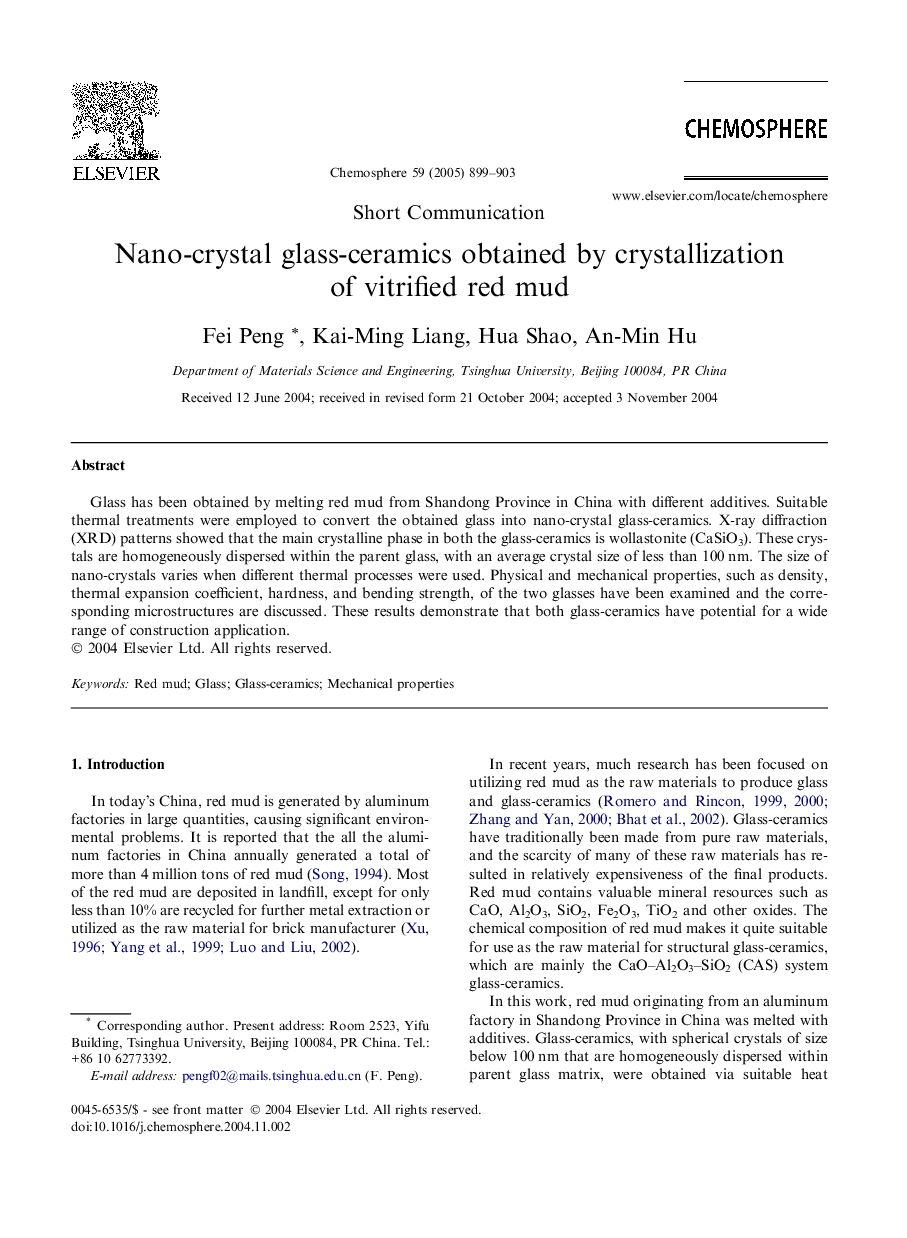| Article ID | Journal | Published Year | Pages | File Type |
|---|---|---|---|---|
| 9451697 | Chemosphere | 2005 | 5 Pages |
Abstract
Glass has been obtained by melting red mud from Shandong Province in China with different additives. Suitable thermal treatments were employed to convert the obtained glass into nano-crystal glass-ceramics. X-ray diffraction (XRD) patterns showed that the main crystalline phase in both the glass-ceramics is wollastonite (CaSiO3). These crystals are homogeneously dispersed within the parent glass, with an average crystal size of less than 100Â nm. The size of nano-crystals varies when different thermal processes were used. Physical and mechanical properties, such as density, thermal expansion coefficient, hardness, and bending strength, of the two glasses have been examined and the corresponding microstructures are discussed. These results demonstrate that both glass-ceramics have potential for a wide range of construction application.
Related Topics
Life Sciences
Environmental Science
Environmental Chemistry
Authors
Fei Peng, Kai-Ming Liang, Hua Shao, An-Min Hu,
